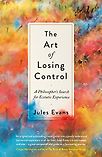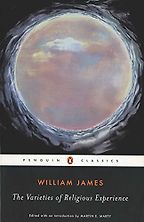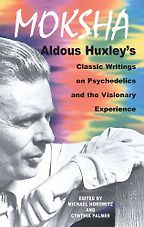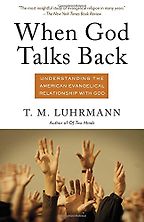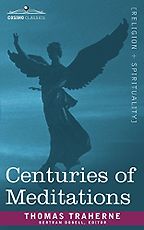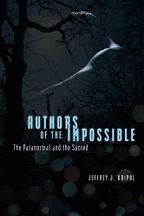Your new book, The Art of Losing Control, considers the significance of what you call ‘ecstatic experiences.’ When did you first become interested in this topic?
My first book was about how people use Greek philosophy today, and how it inspired Cognitive Behavioural Therapy [CBT]. Greek philosophy and CBT both say the way to heal yourself is to use your reason to change your negative beliefs. It works a lot of the time, but not always. Often our self-beliefs are very subconscious and embodied, and rationality doesn’t really reach them. There is another way to transform and heal the self, at a more subconscious and embodied level, and that’s through ecstatic experiences. Ecstasy comes from the ancient Greek ekstasis, meaning ‘standing outside’—it’s a moment in which you shift beyond your ordinary sense of self and feel connected to something greater than you. It can be euphoric, but it can also be terrifying. I’ve been interested in this aspect of human experience since I was a teenager.
You yourself have had what you might call an ‘epiphany,’ at a time when you had broken your leg very badly. Could you tell us about that experience?
The very short version is: I suffered from post-traumatic stress when I was a young adult, triggered by a couple of bad LSD trips. I couldn’t figure out how to get over it. I then had a bad skiing accident in 2001. I broke my leg and back, and knocked myself unconscious, except I wasn’t unconscious—I felt immersed in this loving white light. That’s quite a common aspect of some ecstatic or mystical experiences—an encounter with a loving white light. I felt deeply loved, and ‘knew’ that I was OK and loved, and nothing could harm that, not even death (that’s what I felt at the time, anyway). The experience put me on the road to recovery. I didn’t talk to anyone about it, until I mentioned it in my first book in 2012. It was too weird, too beyond the norms of secular, rationalist culture. But it made a huge difference to my life, and fascinated me.
What are ecstatic experiences? Are they chemical, are they spiritual, are they related to mental health?
You can look at them on various levels. They’re physical, in that they happen in the body and affect the brain, the autonomic nervous system and so on. They’re also alterations in consciousness, which you can examine by asking people ‘what did it feel like?’ You can examine them at the cultural level, and look at how different cultures make sense of ecstasy. And finally you can examine them at the spiritual level—are these experiences really encounters with spirits, gods, a higher power? All these levels interact and inform each other. I remain agnostic about the fourth level—we can’t know for sure if there is a spiritual dimension we’re connecting with or not. We can’t rule it out, but we can’t say for sure. I’m not trying to preach any particular ontology or metaphysics in the book, I’m interested in the different ways people in modern western culture find and make sense of ecstasy today, including atheists.
Your first book choice is William James’s The Varieties of Religious Experience (1902). Can you tell me something about the impact of this book, and what he was trying to achieve?
This is quite an obvious choice. but it’s still the best book on the subject, a century after it was published. James was a genius—one of the greatest psychologists and philosophers ever. His prose is so humane, so articulate, so poetic—he’s really in the 19th-century Transcendentalist tradition of Emerson and Thoreau. Most modern psychologists are so narrow, so unsubtle, so clumsy, so unambitious in comparison. Reading them after him is like going into a telephone box after being in a cathedral.
James used his considerable eloquence to argue that any full view of human experience needs to take account of ecstasy. And he gave researchers a way to approach this area—by collecting and analysing people’s reports. We can ask ‘what’s it like?’—and compare accounts from different people and different eras. We can see that mystical experiences often have some things in common—people report feeling one with all things, for example, or surrendering to a higher power when they’re desperate.
“William James was a genius—one of the greatest psychologists and philosophers ever”
Many researchers of altered states of consciousness have followed James’ footsteps and analysed ecstasy by asking people: ‘what’s it like?’ You can use surveys and questionnaires: Gallup has asked people if they’ve ever had a mystical experience—they’re actually becoming more common, from 20% in 1961 to around 50% today. In a survey I did in 2016, 84% of respondents said they’d had one or more ecstatic experiences. You can analyse how people describe their experiences—the word people most commonly use to describe moments of ecstasy is ‘connection’—they report shifting beyond their usual self-absorbed ego and feeling deeply connected to all things, to nature, to the universe, or to other people, or to God. James defined these experiences as ‘religious’, and only looked at solitary encounters with the divine. But in fact, they often happen to people when they’re in groups, and they are not always interpreted as an encounter with the divine—they could involve an ecstatic connection to nature, or other humans, or your nation, for example.
The point James makes in Varieties, and it’s the main point of my book, too, is that these experiences are not only quite common, they’re often good for us. They’re healing, they’re socially-connecting, they’re inspiring.
How can they heal?
James suggests that ecstatic experiences involve an opening to the subliminal mind. Our ordinary conscious reality is just a small part of us—a great deal of our psychic activity is subliminal and embodied. In moments of ecstasy, the threshold of consciousness is lowered, and contents from the subliminal mind come into consciousness, as in a lucid dream. That can be frightening and disorientating, but it can also be profoundly healing and inspiring, at a mental and physical level. We can confront subconscious attitudes of guilt, trauma or self-loathing, and give ourselves permission to let go of these attitudes and love ourselves. James was inspired by his friend Frederic Myers, a British psychologist who developed the theory of the subliminal mind. Myers insisted the subconscious is both a rubbish-dump and a treasure house. Ecstatic influxes from the subconscious can be pathological, but they can also be inspiring and empowering.
Get the weekly Five Books newsletter
But is ecstasy not just an influx from the subconscious, but also a connection to some genuinely transpersonal spiritual dimension? James remains agnostic, but in the Varieties he does seem to think that ecstasy sometimes really is a connection to a higher dimension, or Mind-at-Large. Myers thought the same, so did Aldous Huxley. James said, if there is a spiritual dimension to life, then we appear to access it through the subliminal mind. We have to learn to focus and expand our consciousness beyond its normal limits.
James talks about the effects of taking drugs like nitrous oxide, and how that’s very similar to a mystical consciousness. You have written about the power of these experiences: how psilocybin, a psychedelic compound found in magic mushrooms, can have a real impact on people trying to process imminent or impending death from cancer.
The author Matthew Green, spoke to us recently about post-traumatic stress, and he too said that many sufferers have reported making breakthroughs in their recovery after taking psychedelic drugs…
Maybe that brings us to Aldous Huxley’s Moksha (1977)?
Towards the end of his career, the novelist Aldous Huxley started writing a lot about ecstatic experiences and how we need to find more of a place for them in western society. Moksha is a collection of some of those writings. Huxley was one of the very few thinkers to consider how ecstasy relates to society, politics and education. He understood that transcendence could be healthy or toxic (what he called ‘upward’ and ‘downward’ transcendence). We need good cultural places, maps and guides for transcendence, so we can find it in healthy ways, rather than in unhealthy ways like addiction or violence.
His final novel, Island, is a kind of blueprint for a society wherein the ecstatic is balanced with the Socratic. The young people on the island have an education which includes the rational but also the ‘non-verbal’ and ecstatic—contemplation, ecstatic dance, psychedelic rituals, tantric sex education.
“Esalen helped to create the modern ‘spiritual-but-not-religious’ landscape that we’re in today”
His blueprint was hugely influential on Californian spirituality of the 1960s, on places like Esalen, and on the Human Potential Movement. Esalen is a sort of alternative college on the coast near Monterey, where students could study everything from Zen meditation to ecstatic dance to psychedelics to neo-Tantra and massage. The Human Potential Movement thought that transpersonal experiences—moments when we go beyond our ordinary ego and connect to something greater than us—have a very important role both in personal development and in human evolution. Places like Esalen helped to create the modern ‘spiritual-but-not-religious’ landscape that we’re in today, where so many people follow practices like yoga, mindfulness, ecstatic dance, psychedelic healing, and so on. Huxley—this stiff, posh, English intellectual—helped to create that world.
Your next choice is Authors of the Impossible (2010) by Jeffrey Kripal. He’s connected to Esalen, isn’t he?
Yes, Kripal is on the board of Esalen and wrote the best history of it. He’s a religious studies scholar at Rice University, and is one of a group of American religion scholars whose work has been really useful to me—others include Ann Taves, Hugh Urban, Erik Davis and Tanya Luhrmann, my next choice. I’d include the sociologist Barbara Ehrenreich in this group—she’s not an academic, but she’s one of the most important contemporary researchers of ecstatic experience.
All of these researchers have explored the cultural history of ecstasy. They’ve studied the different cultural forms that ecstatic experiences can take at different times and different places. You can examine the deep paleo-anthropology of altered states in the culture of early homo sapiens (check out David Lewis-Williams’ The Mind in the Cave), or ecstasy in classical culture (as in E R Dodds’ classic, The Greeks and the Irrational), or ecstasy in Christian medieval culture (as in Norman Cohn’s The Pursuit of the Millennium), or the pathologisation of ecstasy in the early modern era (have a look at Michael Heyd’s undeservedly-obscure Be Sober and Reasonable). Ann Taves’ Fits, Trances and Visions does a splendid job of exploring the reconfiguration of ecstasy in the 18th and 19th centuries, via Methodism, Mesmerism and early psychology. And then you have researchers like Hugh Urban, Erik Davis and Jeffrey Kripal, who study the strange new forms that ecstatic experiences took in the 20th century, from neo-Tantra to UFO abductions to Silicon Valley transhumanism.
“Kripal’s not afraid to discuss his own ecstatic experiences, such as making out with the goddess Kali back in the 1980s”
I’ve read most of Kripal’s books and I think Authors of the Impossible is my favourite, partly because it turned me on to the British psychologist Frederic Myers. I love Kripal’s books for four reasons.
Firstly, their audacity. Kripal’s not afraid to discuss his own ecstatic experiences, such as making out with the goddess Kali in Calcutta back in the 1980s, and to insist on the connection between ecstasy and eroticism. His dissertation was on the taboo connection between mystics’ sacred experiences and their sexuality—it caused a huge furore in India when he suggested Ramakrishna’s mysticism was connected to his supposed homosexuality.
Secondly, his openness. He insists that to appreciate the weirdness of anomalous experiences, we need to steer between the Scylla of religious fundamentalism and the Charybdis of materialist reductionism.
“He has this idea of reading as an ecstatic experience, a way of opening up to other worlds”
Thirdly, he is not afraid to track the ecstatic into the swamplands of pop culture. For example, his book Mutants and Mystics looks at how science fiction and superhero comics helped to reformulate paranormal and ecstatic experiences for modern culture; while Authors of the Impossible and his recent book The Supernatural both compare UFO abduction experiences to more traditional forms of ecstasy.
Finally, his books are just a great read. He has this idea of reading as an ecstatic experience, a way of opening up to other worlds. There’s something of the hammy showman about him, not unlike the medieval mystic Meister Eckhart—both enjoy astounding the reader or listener.
Your next book is Tanya Luhrmann’s When God Talks Back (2012).
Luhrmann’s book is an anthropological study of a charismatic Christian community called the Vineyard Christian Fellowship, which started in California as part of the hippy scene. It was the church Bob Dylan joined. It pioneered a sort of neo-Pentecostal Christianity that believes in the power of the Holy Spirit to heal and perform miracles today. It inspired churches like Holy Trinity Brompton [HTB], in London, where I spent a year.
Luhrmann’s main point is that we learn how to lose control. We learn how to access, interpret and integrate ecstatic experiences through our culture—or, in this case, through the subculture of charismatic Christianity. This is why it’s crucially important to live in a culture which has a place, or places, for ecstatic experiences. Otherwise these experiences happen, and people are just like ‘what the f*** was that?’ Or they happen to people in unsafe contexts, in abusive or exploitative cults or gangs.
“These experiences happen, and people are just like ‘what the f*** was that?’”
Luhrmann studies how charismatic Christians learn to encounter and experience God in their lives. And she realises they’re taught how to hear the voice of God. They’re taught to go into a contemplative state—a state of trance or absorption—in which they’re more open to the subliminal mind, and they’re taught to identify certain thoughts as messages from God. They’re also taught to imagine and sometimes visualise God, or Christ, as a figure of love, and then to engage in a deep personal relationship with Him. It’s an emotional and imaginative practice—God becomes more real with practice.
One thing I noticed at HTB is it’s also very much a communal practice. How do you believe in a God-filled world when you’re in a disenchanted culture which hardly mentions God? You surround yourself with people who also believe in a God-filled world, and you constantly talk about God and all the amazing things He’s doing in people’s lives. You make it real in your words, your relationships, your acts. It’s a form of collective improvisation, a ‘let’s pretend’ game which then becomes ‘really real’ in people’s lives.
Five Books interviews are expensive to produce. If you're enjoying this interview, please support us by donating a small amount.
When I was researching medieval mysticism, it reminded me of modern fan fiction. The mystic Margery Kempe, for example, reads up on the Bible and the tradition of female mystics, she becomes a huge fan and soaks her memory in the imaginative world of the Bible, and then she spontaneously starts imagining Jesus appearing to her and saying: ‘Margery, you are my favourite of all the mystics.’ And she writes her own book, tells her own story and adds it to that fan fiction universe. That’s the first autobiography in English, by the way.
Speaking of fan fiction, when I was a teenager—and I’m quite embarrassed about this now—I was obsessed with all the Star Wars books, the ‘extended universe,’ and read all the fan fiction online. I didn’t feel the need to write it, but the idea of them living on after the end of the films was very important to me, because I had become so attached to the characters.
People have pretended that Jediism is a religion—kind of as a joke, but they kind of mean it as well. They’ll get Star Wars tattoos, memorise the films, buy the toys, go to conventions and dress up as their favourite characters. They may emulate the moral qualities of their heroes, ask themselves: ‘What would Yoda do?’ They may really believe in The Force as a theological concept. They will make the fictional world real in their lives.
I think we all do this. We all shape our reality through our imagination and our expectations. Reality is a consensual hallucination. As the historian Yuval Noah Harari insists, we all exist in shared fictional worlds—capitalism is a fiction in which we become deeply absorbed, for example.
“We all exist in shared fictional worlds—capitalism is a fiction in which we become deeply absorbed”
The question is, are the imaginative universes we’re constructing and immersing ourselves in healthy and good for us, or not? Do they lead to flourishing? Do they lead to a better world? Do they predict or shape the future in useful ways? Of course, this raises the question of how do we morally evaluate different experiences of ecstasy. Kempe, for example, was widely considered an irritating oddball in her own time, because of her habit of howling with tears every time she thought of the crucifixion, which was often.
I think we can follow William James and ask whether an ecstatic experience leads to increased well-being or flourishing for a person and their community. And also whether an ecstatic world-view is interesting, useful, beautiful. That’s quite hard to assess objectively! But there are some obvious cases where one could say, no, probably not—such as the Jonestown Massacre, or the Heaven’s Gate cult, in both of which the cult members killed themselves. They would say that their deaths did lead to flourishing, just in another dimension. Well, that’s where we get to the limit of the scientific method. But I’m fairly confident they’re wrong, that they were unfortunately taken for a ride by psychopath gurus. We need to balance our capacity for absorption with a capacity to say, wait a minute, are we giving our lives to a power-hungry, abusive lunatic?
Tell us about your final choice, Thomas Traherne’s Centuries of Meditations (1908).
The other four choices are all somewhat analytical, and I wanted to have at least one book that was more actively conducive to ecstasy. This book isn’t widely known but it’s a classic. Traherne was a pastor in 17th-century England, barely known in his lifetime, who wrote poetry and prose, including a contemplative guide called Centuries of Meditations—it’s 400 brief passages for meditation, written for a friend of his. The manuscript was lost for 150 years, and then discovered in a bin outside a second-hand bookstore in the Charing Cross Road, in 1896. It was finally published in 1908, and since then, a handful of readers have recognised its genius: C S Lewis called it “almost the most beautiful book in the English language,” Aldous Huxley quoted from it in his Perennial Philosophy, while the theologian David Bentley Hart recently described Centuries as “one of the most compelling and beautiful descriptions of reality as it truly is.”
One of the things I was trying to do in my book was engage with my Christian heritage, as a life-long non-Christian. I was interested in whether non-Christians could engage with Christian contemplation, as well as Eastern practices, and whether we could create a new contemplative infrastructure for a multicultural society. So I read a fair amount of Christian contemplative texts, to see what could be accessible to non-Christians. And most of it isn’t really accessible, to be honest, unless you believe Jesus was the only son of God. But there are some books which are more open to non-Christian, and one of these is Traherne’s Centuries.
“One of the things I was trying to do was engage with my Christian heritage, as a life-long non-Christian”
It’s quite Stoic or Romantic—he says early on that what causes us suffering is not original sin, but our own opinions, particularly our need to win others’ approval. We need to stop trying to impress strangers, and instead look within, and realise how incredibly rich and blessed we are— the kingdom of heaven is within, in our souls or consciousness. And it’s also without, in the richness of the physical world, our bodies, nature.
He writes these beautiful descriptions of his childhood in Hereford, how the trees and the fields filled him with ecstasy, how we need to re-find that sense of delight. They’re extremely Wordsworthian, 150 years before The Prelude. And he constantly insists on the wonder of consciousness. He was writing during the rise of materialism, a philosophy which is very useful for descriptions of physical reality, but which can’t really explain or find a place for consciousness. So it tends to downplay the importance of consciousness. But Traherne refuses to do this. He is amazed by consciousness—”Souls are God’s jewels, every one of which is worth many worlds.”
“We need to stop trying to impress strangers, and instead look within, and realise how incredibly rich and blessed we are”
He is astounded by how this immaterial thing—consciousness—can contemplate all of nature, even the universe, and thereby expand to take them into itself. Consciousness is ecstatic, he realises—it reaches out beyond the self, connects to things, attends to them. We can learn to attend to nature, to ‘enjoy it aright’, and appreciate how blessed we are to be in this world.
Traherne sees a connection between consciousness and love—when we love someone or something, and when we feel loved, we move beyond narrow ego-consciousness into a more expanded, interconnected or ecstatic consciousness. He has a vision of a universe of souls connected in love: ‘All are happy in each other. All are like Deities. Every one the end of all things, everyone supreme, every one a treasure, and the joy of all, and every one most infinitely delighted in being so.’
One of the side-missions of my book was to encourage people to read Traherne—that’s why I dedicated the book to him, along with Frederic Myers. They’re two extraordinary English ecstatics, both of them practically out-of-print, both of whom deserve tremendous respect.
Interview by Cal Flyn, Deputy Editor
June 29, 2017. Updated: July 26, 2023
Five Books aims to keep its book recommendations and interviews up to date. If you are the interviewee and would like to update your choice of books (or even just what you say about them) please email us at [email protected]

